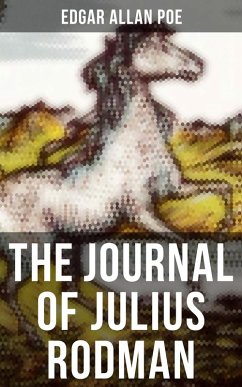
The Life and Death of Julius Agricola (eBook, ePUB)
A Roman General's Legacy: Insights into Ancient Society and Military Leadership
Übersetzer: Brodribb, Alfred John Church and William Jackson
Versandkostenfrei!
Sofort per Download lieferbar
1,99 €
inkl. MwSt.
Weitere Ausgaben:

PAYBACK Punkte
0 °P sammeln!
In "The Life and Death of Julius Agricola," Tacitus offers a poignant yet incisive examination of the military career and governance of his father-in-law, Agricola, who served as the Roman governor of Britain. This biographical work is characterized by Tacitus's succinct prose style, employing a blend of personal narrative and historical analysis to highlight the complexities of Roman imperialism and the nature of virtue in leadership. Lucid and engaging, the text serves not only as a tribute but also as a critical reflection on the moral implications of conquest and governance during the Flav...
In "The Life and Death of Julius Agricola," Tacitus offers a poignant yet incisive examination of the military career and governance of his father-in-law, Agricola, who served as the Roman governor of Britain. This biographical work is characterized by Tacitus's succinct prose style, employing a blend of personal narrative and historical analysis to highlight the complexities of Roman imperialism and the nature of virtue in leadership. Lucid and engaging, the text serves not only as a tribute but also as a critical reflection on the moral implications of conquest and governance during the Flavian dynasty. Tacitus, a prominent Roman senator and historian, writes from the vantage of one who is deeply aware of the political intrigues and moral dilemmas of his time. His intimate connection with Agricola, both through family ties and shared experiences within the tumultuous context of Roman politics, provides a unique lens through which the text can be understood. Tacitus'Äôs broader works reveal his concerns regarding the decline of Roman moral values, illuminating the backdrop against which he seeks to redeem Agricola's legacy. Readers interested in Roman history, biography, and the philosophical questions surrounding power and ethics will find "The Life and Death of Julius Agricola" indispensable. This nuanced portrayal not only paints a vivid picture of a significant historical figure but also invites contemporary reflections on leadership and responsibility.
Dieser Download kann aus rechtlichen Gründen nur mit Rechnungsadresse in A, B, BG, CY, CZ, D, DK, EW, E, FIN, F, GR, H, IRL, I, LT, L, LR, M, NL, PL, P, R, S, SLO, SK ausgeliefert werden.













